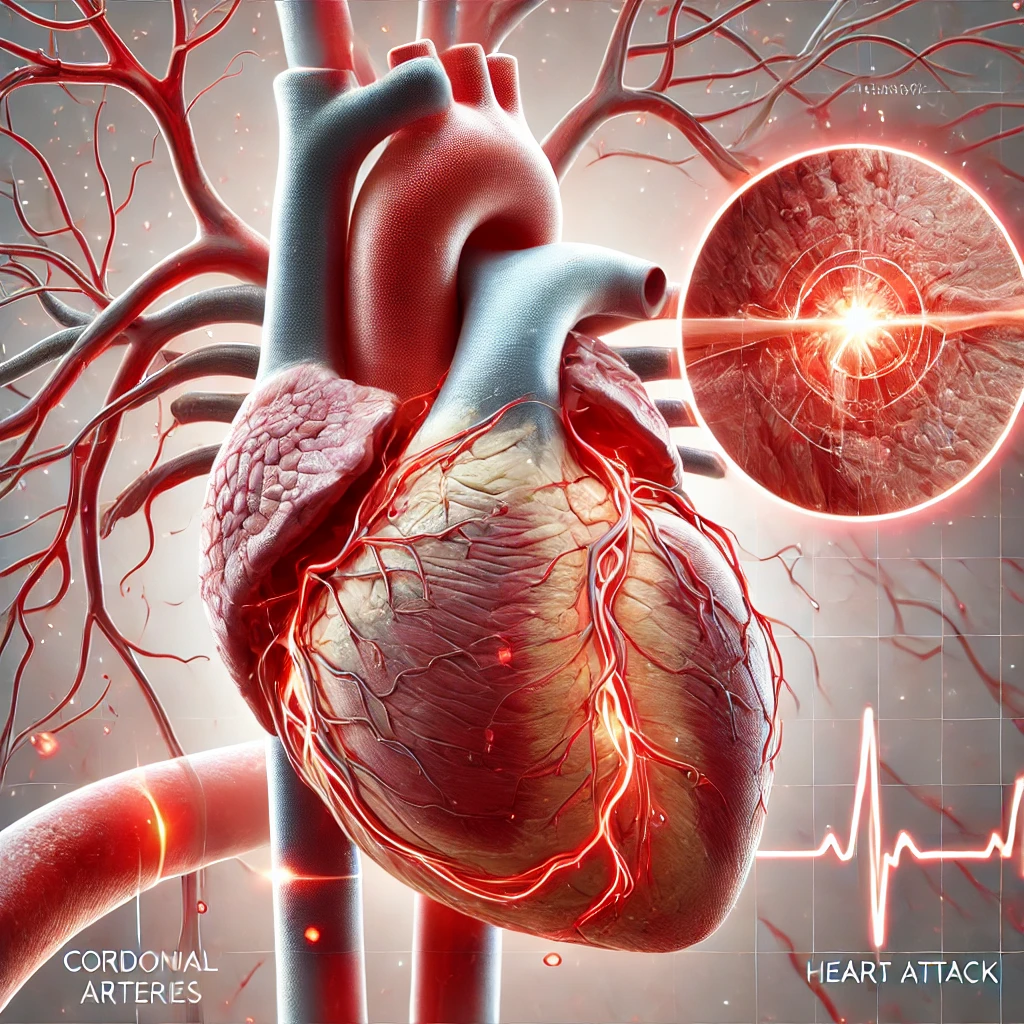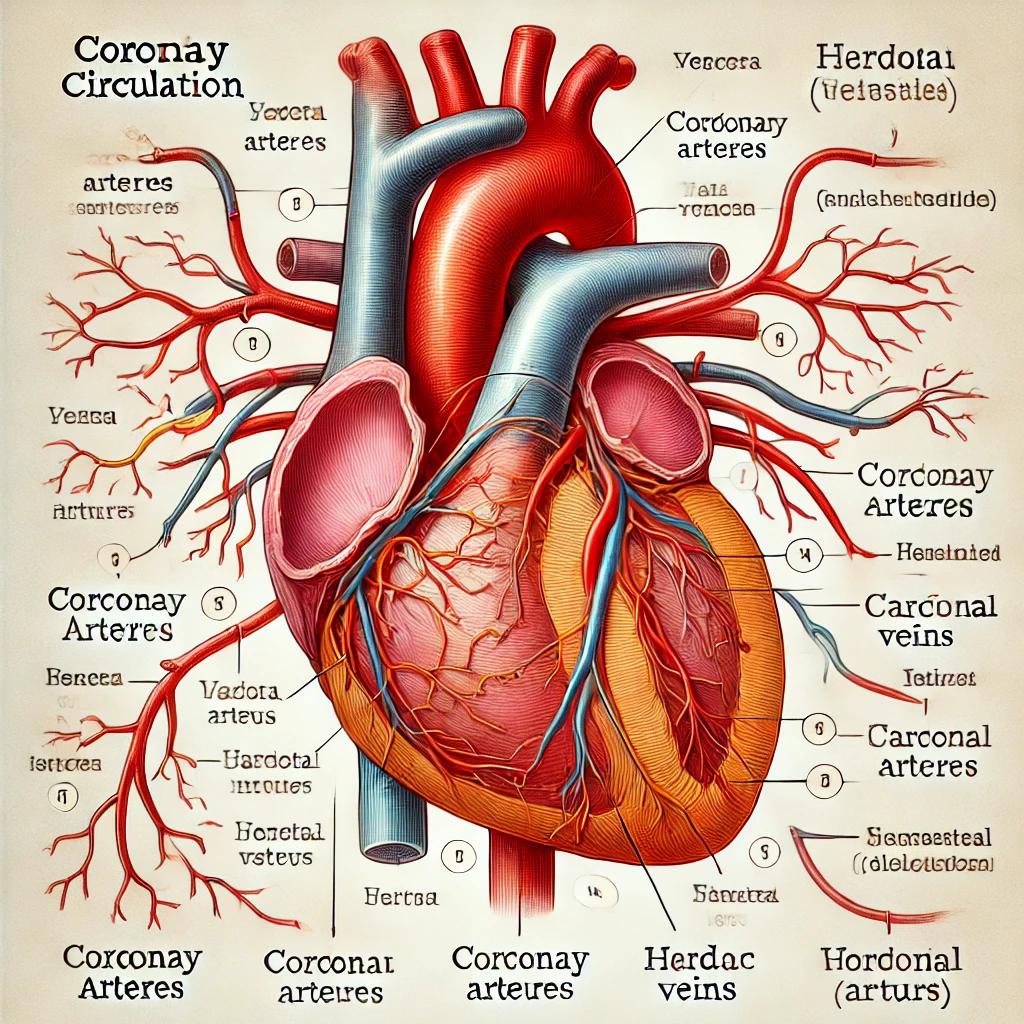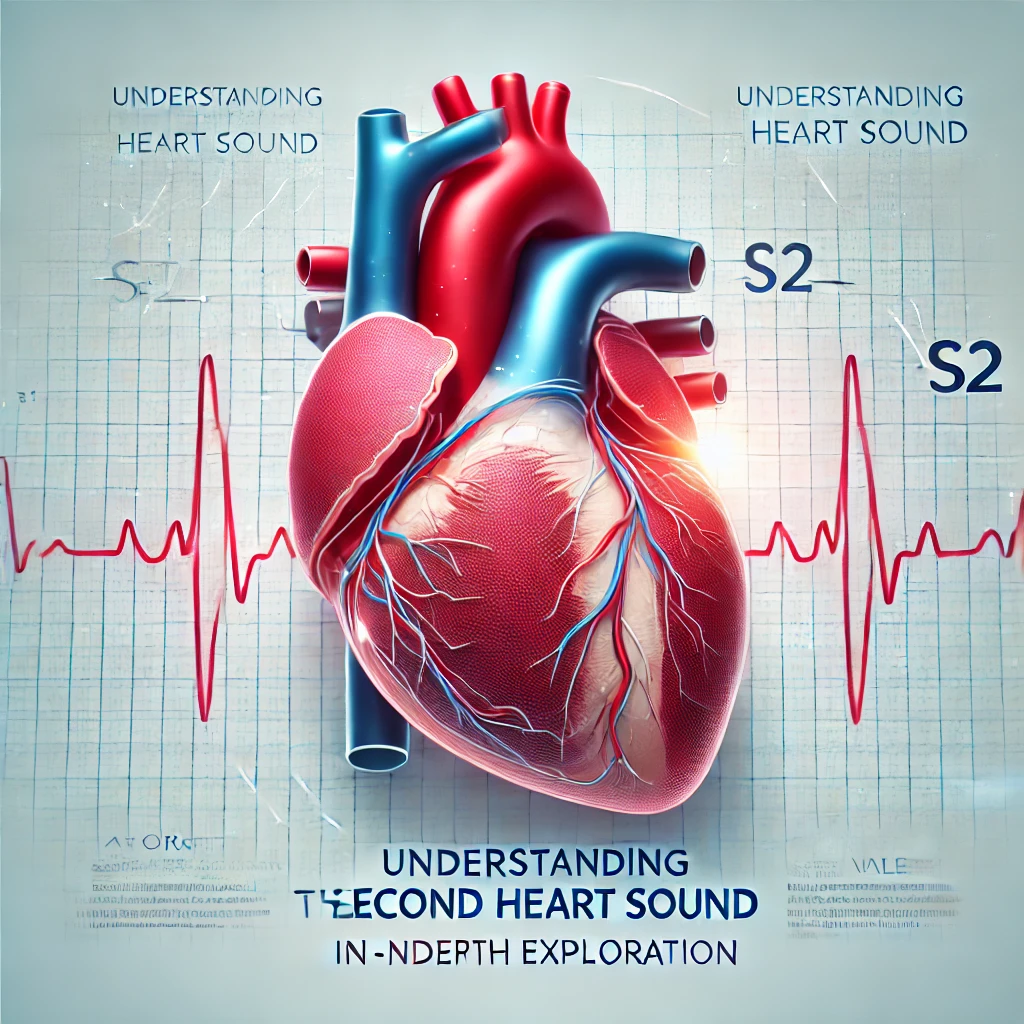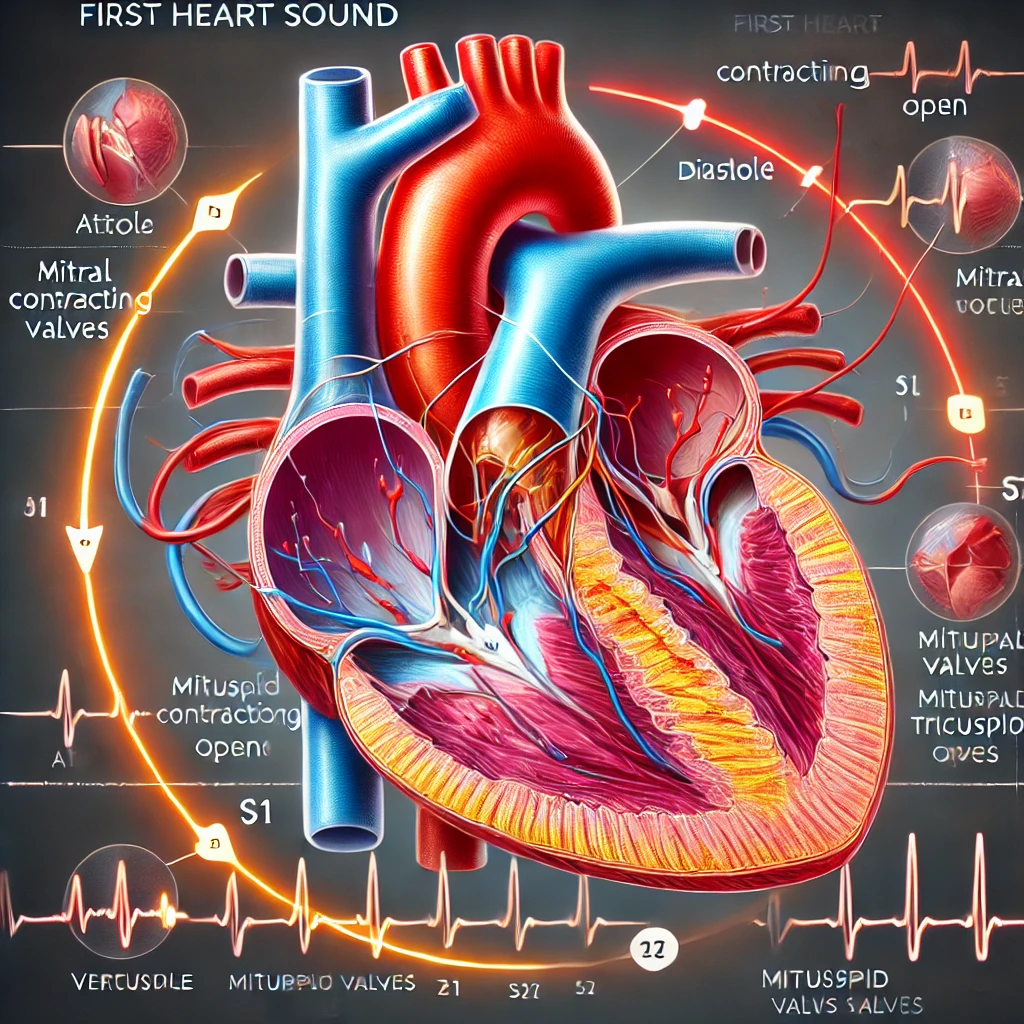Chest Pains
Chest pain is a common symptom experienced by many people at some point in their lives. However, it’s often not easy to determine the cause because chest pain can be a symptom of many conditions. Typically, chest pains are divided into two categories: cardiac chest pain, which relates to the heart, and non-cardiac chest pain, which is unrelated to the heart. This article aims to help you understand the various causes of cardiac and non-cardiac chest pain.

1. Cardiac Chest Pain
Cardiac chest pain, or angina, is caused by a heart problem. It is often described as pressure or squeezing in the chest. It can also feel like heartburn or indigestion. The pain can be constant or come and go, and it can be mild or severe.
1.1. Heart Disease
Heart disease is the leading cause of cardiac chest pain. It occurs when the blood vessels that supply blood to the heart become hardened and narrowed due to the buildup of fatty deposits known as plaques, a condition known as atherosclerosis. When these blood vessels are narrowed, it reduces blood flow to the heart, which can cause chest pain.
Coronary Artery Disease
The most common type of heart disease that causes chest pain is coronary artery disease (CAD). It happens when the major blood vessels that supply your heart with blood, oxygen, and nutrients (coronary arteries) become damaged or diseased. CAD is usually caused by atherosclerosis.
Myocardial Infarction (Heart Attack)
A myocardial infarction, commonly known as a heart attack, occurs when blood flow to part of the heart muscle is blocked, usually by a blood clot. This can cause severe chest pain, often a crushing or squeezing sensation. Other symptoms, such as shortness of breath, sweating, and nausea, may accompany it.
Angina Pectoris
Angina, also known as angina pectoris, is a condition where the heart muscle doesn’t receive enough blood due to narrowed coronary arteries, resulting in chest pain. The pain is typically described as a pressure or squeezing sensation in the chest.
1.2. Other Heart-Related Conditions
While heart disease is a common cause of cardiac chest pain, other heart-related conditions can also result in chest pain.
Myocarditis
Myocarditis is an inflammation of the heart muscle, often caused by a viral infection. It can cause chest pain and symptoms like fatigue, shortness of breath, and rapid or irregular heartbeats.
Pericarditis
Pericarditis is an inflammation of the pericardium, the sac-like membrane surrounding the heart. It can cause sharp, stabbing chest pain that often worsens when lying down or inhaling deeply.
Aortic Dissection
Aortic dissection is a severe condition where the aorta’s inner layer, the large blood vessel branching off the heart, tears. It causes sudden, severe chest pain and is a medical emergency.
2. Non-Cardiac Chest Pain
Non-cardiac chest pain that is not related to the heart. Many different conditions can cause non-cardiac chest pain.
2.1. Digestive System Causes
Several conditions related to the digestive system can cause chest pain.
Gastroesophageal Reflux Disease
Gastroesophageal reflux disease (GERD), or acid reflux, is a common cause of non-cardiac chest pain. It occurs when stomach acid or, occasionally, stomach content flows back into your food pipe (oesophagus). This backwash (acid reflux) can irritate the lining of your esoesophaguscausing chest pain.
Peptic Ulcers
Peptic ulcers, which are sores on the lining of your stomach or the upper part of your small intestine, can cause burning chest pain that may feel similar to heartburn.
Gallbladder or Pancreas Problems
Problems with the gallbladder or pancreas can cause abdominal pain that radiates to the chest.
2.2. Musculoskeletal Causes
Problems with the bones and muscles can also cause chest pain.
Costochondritis
Costochondritis is an inflammation of the cartilage in the rib cage. It can cause chest pain that worsens when you cough or take a deep breath.
Muscle Strain
Chest muscle strain, often from exercise or heavy lifting, can also cause chest pain.
2.3. Respiratory System Causes
Various conditions related to the respiratory system can also cause chest pain.
Pleurisy
Pleurisy is an inflammation of the pleura, the two thin tissue layers separating your lungs from your chest wall. It can cause sharp chest pain that worsens during breathing.
Pneumonia or Lung Infection
Pneumonia or other types of lung infections can cause chest pain, along with symptoms like coughing, fever, and difficulty breathing.
Pulmonary Embolism
A pulmonary embolism, a blood clot in the lungs, is a severe condition that can cause sudden, sharp chest pain and symptoms like shortness of breath and rapid heart rate.
3. Conclusion
Chest pains can have many possible causes, both cardiac and non-cardiac. Because some of these causes are serious, it’s essential to seek immediate medical help if you experience unexplained chest pain, especially if it’s accompanied by other symptoms such as shortness of breath or pain radiating to your jaw, neck, or arm.
Remember, it’s always better to be safe than sorry when dealing with chest pain. Even if it turns out to be something minor, it’s better to have the peace of mind of knowing what’s going on. So, don’t hesitate to seek medical attention if you’re experiencing chest pain.
FAQ:
1. What is the most common cause of chest pain?
The most common cause of chest pain is heart-related issues, particularly coronary artery disease. However, chest pain can also be caused by non-heart-related conditions such as gastroesophageal reflux disease (GERD) or musculoskeletal problems.
2. How do I know if my chest pain is severe?
Suppose your chest pain is accompanied by other symptoms such as shortness of breath, nausea, dizziness, cold sweat, fatigue, or pain spreading to your arms, shoulders, neck, jaw, or back. In that case, it may indicate a severe condition like a heart attack, and you should seek immediate medical attention.
3. Can chest pain be caused by stress or anxiety?
Chest pain can be a symptom of a panic attack or anxiety. This is often called “non-cardiac” chest pain. However, it’s essential to rule out heart disease or other severe conditions if you’re experiencing chest pain.
4. Can heartburn cause chest pain?
Yes, heartburn, or acid reflux, can cause a burning sensation or discomfort in your chest. This happens when stomach acid backs up into the esoesophagusthe tube carries food from your mouth to your stomach.
5. What does angina feel like?
Angina, a type of cardiac chest pain, is often described as pressure, squeezing, heaviness, tightening, or aching across the chest, particularly behind the breastbone. This pain can spread to the arms, neck, jaw, shoulder, or back.
6. What does chest pain from a heart attack feel like?
Chest pain from a heart attack is often described as pressure, squeezing, or fullness in the centre of the chest. The pain may last more than a few minutes, or it may come and go. It may also spread to the arms, shoulders, neck, jaw, or back.
7. Can chest pain be a sign of lung problems?
Chest pain can indicate lung conditions such as pneumonia, pleurisy, and pulmonary embolism. These conditions usually cause chest pain that worsens during breathing or coughing.
8. Can chest pain be a sign of cancer?
In some cases, yes. Certain types of cancer, such as lung cancer or esophageal cancer, can cause chest pain. However, chest pain is not a common cancer symptom and is usually caused by other conditions.
9. What is the treatment for chest pain?
The treatment for chest pain depends on its cause. For example, heart-related chest pain may be treated with medications, lifestyle changes, or procedures to improve blood flow to the heart. Chest pain due to acid reflux may be treated with antacids or medications to reduce stomach acid.
10. Should I always go to the hospital for chest pain?
While not all chest pain is a sign of a severe problem, it’s essential to seek medical attention if you have unexplained chest pain, especially if it’s severe or accompanied by other symptoms such as shortness of breath or pain radiating to your arm, neck, or jaw. When in doubt, it’s better to be safe than sorry.
References:
My other Articles:
- Unravelling the Mystery: An In-Depth Look at Chest Pain
- Angina Pectoris: Understanding Stable Angina
- Angina Pectoris: Understanding Unstable Angina
- Hematuria Symptoms, Signs of Hematuria
- Brain Signal Decoding: A Revolutionary Approach in Chronic Pain Treatment
Chest pain can originate from various sources. Cardiac chest pain is often related to heart issues like coronary artery disease or heart attacks, while non-cardiac chest pain can result from digestive problems, musculoskeletal issues, or respiratory conditions. Treatment varies depending on the cause, from medications and lifestyle changes for heart-related cases to managing acid reflux for non-cardiac pain. Seek immediate medical help for severe or concerning chest pain to ensure prompt diagnosis and appropriate treatment.
Disclaimer:
This article is for informational purposes only and should not be used as a replacement for professional medical advice. If you’re experiencing chest pain, especially severe, persistent, or accompanied by other symptoms like shortness of breath or jaw pain, seek immediate medical attention. Always consult with a healthcare professional for accurate information.




